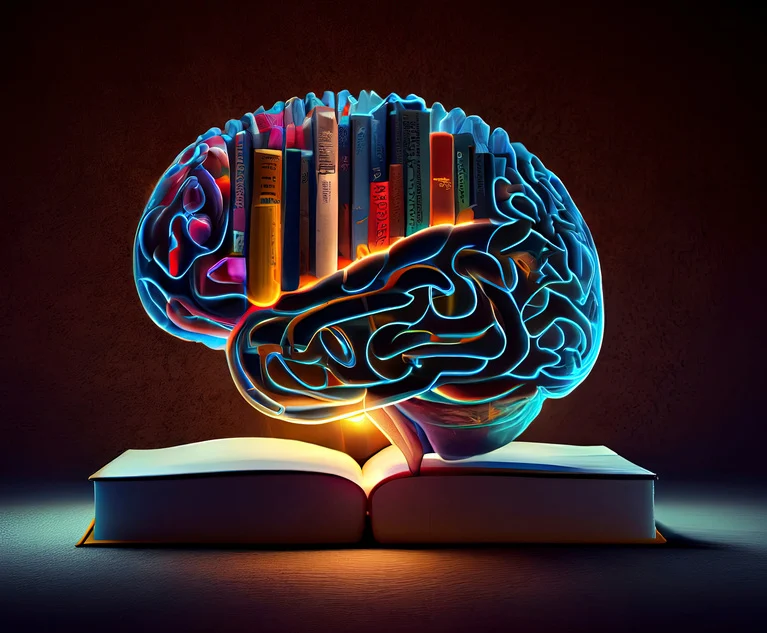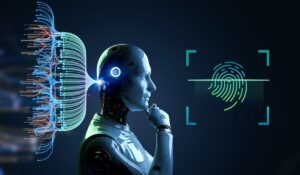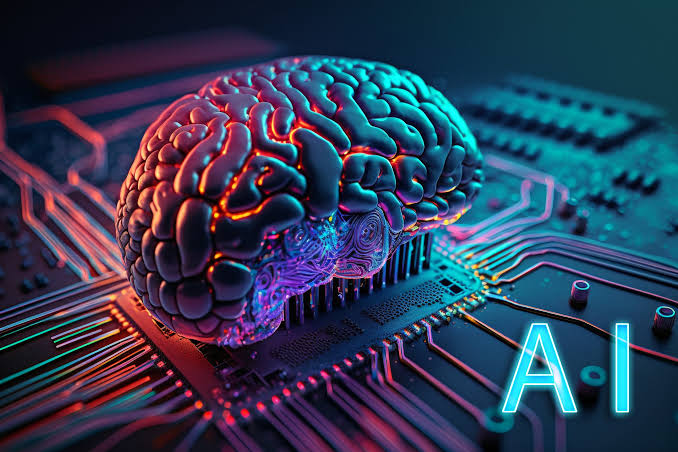What is Artificial Intelligence?
Artificial Intelligence (AI) is a transformative technology that simulates human intelligence processes through the use of algorithms, neural networks, and machine learning techniques. These processes include learning (the acquisition of information and rules for using it), reasoning (using rules to reach approximate or definite conclusions), and self-correction. AI aims to create systems that can perform tasks typically requiring human intelligence, such as visual perception, speech recognition, decision-making, and language translation.
How Does Artificial Intelligence Work?
AI works by processing large amounts of data and identifying patterns and correlations within it. This is often achieved through machine learning, a subset of AI where algorithms are trained on vast datasets. These algorithms can then make predictions or decisions based on new data. Neural networks, modeled after the human brain, are particularly effective for tasks like image and speech recognition. The complexity of AI systems can range from simple rule-based systems to advanced deep learning networks.
How to Use Artificial Intelligence
AI can be used in a myriad of ways across various industries. For businesses, AI can optimize operations, enhance customer service through chatbots, and provide predictive analytics. In healthcare, AI assists in diagnosing diseases and personalizing treatment plans. In finance, AI helps with fraud detection and algorithmic trading. For individuals, AI powers personal assistants like Siri and Alexa, provides recommendations on streaming services, and enhances security with facial recognition systems.

How to Learn Artificial Intelligence
Learning AI requires a strong foundation in mathematics, especially in areas like linear algebra, calculus, probability, and statistics. It’s also essential to have programming skills, with Python being the most popular language for AI development. Online courses from platforms like Coursera, edX, and Udacity offer comprehensive AI programs. Books, research papers, and hands-on projects are also valuable resources. Joining AI communities and attending conferences can provide additional insights and networking opportunities.
How to Self-Study Artificial Intelligence for Free
Self-studying AI for free involves leveraging a wealth of online resources. Websites like Coursera and edX offer free courses on AI and machine learning. MIT OpenCourseWare and Stanford Online provide access to lecture notes and assignments from their AI courses. YouTube channels and blogs dedicated to AI can also be invaluable. Engaging with free datasets from platforms like Kaggle allows for practical application and experimentation. Open-source libraries like TensorFlow and PyTorch facilitate the building and testing of AI models.
How to Be an Artificial Intelligence Engineer
To become an AI engineer, start with a strong educational background in computer science or a related field. Gain proficiency in programming languages such as Python, R, and Java. Develop expertise in machine learning frameworks like TensorFlow and PyTorch. Building a portfolio of projects showcases practical skills and problem-solving abilities. Networking with professionals and joining AI organizations can open career opportunities. Continuous learning through courses and certifications keeps skills up-to-date in this rapidly evolving field.
Which Artificial Intelligence Companies to Invest In
Investing in AI companies can be lucrative given the technology’s transformative potential. Leading AI companies include tech giants like Google, Microsoft, Amazon, and IBM, which are heavily invested in AI research and development. Smaller, specialized companies like NVIDIA, known for its GPUs that power AI computations, and OpenAI, a leader in AI research, also present compelling opportunities. It’s essential to research and understand the company’s AI initiatives, market position, and financial health before investing.
Which Artificial Intelligence Course is Best
The best AI course depends on your current skill level and learning goals. For beginners, Coursera’s “Machine Learning” by Andrew Ng is highly recommended. For more advanced learners, MIT’s “Artificial Intelligence: Principles and Techniques” provides deep insights into AI concepts. Udacity’s “AI for Everyone” is suitable for non-technical learners. Specialized courses on platforms like edX and DataCamp offer focused learning on topics like deep learning, natural language processing, and computer vision.
Which Artificial Intelligence is Best
Determining the best AI depends on the application. For general machine learning, TensorFlow and PyTorch are highly regarded frameworks. In natural language processing, OpenAI’s GPT models are state-of-the-art. For computer vision, models like Convolutional Neural Networks (CNNs) and tools like OpenCV are preferred. Google’s BERT is excellent for language understanding tasks. Each tool and model excels in different areas, and the best choice often depends on the specific requirements of the task at hand.
Which of the following is the Branch of Artificial Intelligence
Machine Learning (ML) is a prominent branch of AI. It focuses on developing algorithms that allow computers to learn from and make decisions based on data. Other branches include Natural Language Processing (NLP), which enables machines to understand and respond to human language, and Computer Vision, which allows computers to interpret and process visual information. Robotics, which combines AI with mechanical engineering, is another critical branch, enabling machines to perform physical tasks autonomously.
Which of the Following is Not an Application of Artificial Intelligence
An example of a task that is not an application of AI is manual data entry. AI excels in automating repetitive tasks and making data-driven decisions, but manual data entry typically involves straightforward input without the need for learning or pattern recognition. In contrast, AI applications include autonomous vehicles, personalized recommendations, fraud detection, and virtual assistants, all of which rely on complex algorithms and data analysis.
Which of the Following is the Common Language for Artificial Intelligence
Python is the most common language for AI due to its simplicity and extensive library support. Libraries like TensorFlow, PyTorch, scikit-learn, and Keras make it easy to implement complex AI algorithms. Other languages used in AI include R for statistical analysis, Java for large-scale projects, and C++ for performance-critical applications. However, Python’s versatility and ease of use make it the preferred choice for most AI practitioners.
Which of the Following is an Application of Artificial Intelligence
An example of an AI application is a recommendation system. These systems analyze user data to provide personalized content suggestions, such as movies on Netflix or products on Amazon. AI algorithms process vast amounts of data to identify patterns and predict user preferences. Other AI applications include speech recognition, autonomous vehicles, predictive maintenance in manufacturing, and medical diagnostics, all leveraging AI’s ability to analyze and interpret complex datasets.
Which Language is Used for Artificial Intelligence
Python is widely used for AI development due to its readability and extensive support for AI libraries. R is another language favored for its strong statistical and data analysis capabilities. Java is used for large-scale enterprise applications and C++ for performance-intensive AI tasks. Lisp and Prolog, although less common today, were historically significant in AI development. Each language offers unique advantages depending on the specific AI application.
Which College is Best for Artificial Intelligence
Several colleges are renowned for their AI programs. MIT, Stanford University, and Carnegie Mellon University are globally recognized for their cutting-edge AI research and education. Other notable institutions include the University of California, Berkeley, and the University of Cambridge. These colleges offer comprehensive AI curricula, access to leading researchers, and opportunities for practical experience through labs and industry partnerships.
Why is Artificial Intelligence Important
AI is important because it enhances efficiency, accuracy, and capabilities across various industries. It automates routine tasks, allowing humans to focus on more complex and creative work. In healthcare, AI can improve diagnostics and treatment plans. In finance, it enhances fraud detection and trading strategies. AI also drives innovation, leading to new products and services that improve quality of life. Its ability to analyze vast amounts of data quickly and accurately makes it invaluable in today’s data-driven world.
Why Do We Need Artificial Intelligence
We need AI to handle the increasing volume and complexity of data in modern society. AI’s ability to process and analyze data far exceeds human capabilities, enabling faster and more accurate decision-making. It automates repetitive tasks, increases productivity, and drives innovation. In healthcare, AI can identify patterns in medical data to improve diagnostics and treatments. In environmental science, AI helps in monitoring and addressing climate change. AI’s versatility and efficiency make it essential for tackling contemporary challenges.
Why is Artificial Intelligence Dangerous
AI poses potential dangers if not properly regulated and controlled. One concern is job displacement due to automation, which can lead to economic inequality. AI systems can also perpetuate and amplify biases present in training data, leading to unfair outcomes. Security risks include the potential for AI to be used in cyber-attacks or autonomous weapons. There are also ethical concerns about privacy and surveillance. Ensuring safe and ethical AI development is crucial to mitigating these risks.
Why Was Artificial Intelligence Created
AI was created to solve complex problems and automate tasks that are difficult or impossible for humans to perform efficiently. The goal was to develop systems that could learn, reason, and make decisions, thereby enhancing human capabilities and addressing challenges in various fields. Early AI research aimed to replicate human cognitive processes, and over time, advancements in computing power and data availability have enabled the development of sophisticated AI systems that can perform a wide range of tasks.
Why is Artificial Intelligence Good for Society
AI benefits society by improving efficiency, accuracy, and innovation across multiple sectors. In healthcare, AI enhances diagnostics and personalized medicine. In transportation, autonomous vehicles promise safer and more efficient travel. AI-powered systems improve customer service, financial planning, and supply chain management. By automating routine tasks, AI frees up time for more creative and strategic work. It also drives technological advancements, leading to new products and services that improve quality of life and address global challenges.
Why Study Artificial Intelligence
Studying AI opens up numerous career opportunities and allows individuals to be at the forefront of technological innovation. AI skills are in high demand across various industries, from tech and finance to healthcare and manufacturing. Understanding AI enables professionals to develop and implement advanced technologies that solve complex problems. It also provides a deeper understanding of machine learning, data analysis, and algorithm development, which are valuable skills in today’s data-driven world.
Why is Artificial Intelligence Used
AI is used to enhance efficiency, accuracy, and decision-making across various
industries. It automates routine tasks, reducing the need for manual labor and increasing productivity. In healthcare, AI assists in diagnosing diseases and personalizing treatment plans. In finance, it improves fraud detection and trading strategies. AI also enhances customer service through chatbots and recommendation systems. Its ability to process and analyze large amounts of data quickly makes it invaluable for solving complex problems and driving innovation.
Why Learn Artificial Intelligence
Learning AI equips individuals with skills that are highly sought after in today’s job market. AI knowledge enables professionals to develop and implement technologies that automate tasks, analyze data, and make intelligent decisions. It opens up career opportunities in various fields, including tech, finance, healthcare, and manufacturing. Understanding AI also allows individuals to stay ahead in a rapidly evolving technological landscape and contribute to advancements that can have a significant impact on society.
Why Invest in Artificial Intelligence
Investing in AI offers significant growth potential due to its transformative impact on various industries. AI-driven technologies improve efficiency, productivity, and innovation, leading to cost savings and new revenue streams. Companies investing in AI can gain a competitive edge by leveraging advanced analytics, automation, and intelligent decision-making. The increasing adoption of AI across sectors such as healthcare, finance, and manufacturing underscores its long-term growth prospects. However, it’s essential to research and understand the risks and opportunities before investing.
What Would Life Be Without Artificial Intelligence
Without AI, many of the efficiencies and conveniences we take for granted would not exist. Tasks that AI automates, such as data analysis, fraud detection, and personalized recommendations, would require significant human effort. Innovations in healthcare, transportation, and customer service driven by AI would be less advanced. Productivity would decrease as routine tasks would need to be performed manually. While life without AI is possible, it would be less efficient and less innovative, impacting the overall quality of life and technological progress.
Can We Live Without Artificial Intelligence
While we can live without AI, our lives would be significantly less efficient and innovative. Many of the conveniences and advancements we enjoy today, from personalized recommendations to automated customer service, rely on AI. Without AI, tasks such as data analysis, fraud detection, and medical diagnostics would be more time-consuming and less accurate. While humans can perform these tasks, AI enhances speed, accuracy, and scalability, making it an integral part of modern life.
Machine Learning or Artificial Intelligence
Machine Learning (ML) is a subset of Artificial Intelligence (AI). While AI encompasses a broad range of technologies and methodologies aimed at creating intelligent systems, ML specifically focuses on developing algorithms that allow systems to learn from data and make decisions. ML is a critical component of AI, enabling systems to improve performance over time without explicit programming. Both AI and ML are essential for developing intelligent technologies, but ML represents a more specialized area within the broader AI field.
Artificial Intelligence Versus Human Intelligence
AI and human intelligence differ fundamentally in their nature and capabilities. Human intelligence encompasses emotional, social, and cognitive aspects, allowing for creativity, empathy, and complex decision-making. AI, on the other hand, excels in processing large amounts of data quickly and accurately, identifying patterns, and making data-driven decisions. While AI can outperform humans in specific tasks, it lacks the broader cognitive abilities and consciousness of human intelligence. The synergy of AI and human intelligence can lead to powerful solutions that leverage the strengths of both.
In conclusion, AI is a transformative technology with profound implications across various sectors. Understanding AI, its applications, and its impact is crucial for navigating the modern technological landscape. By exploring these 30 questions, we gain a deeper appreciation of AI’s capabilities, challenges, and potential for shaping the future.




